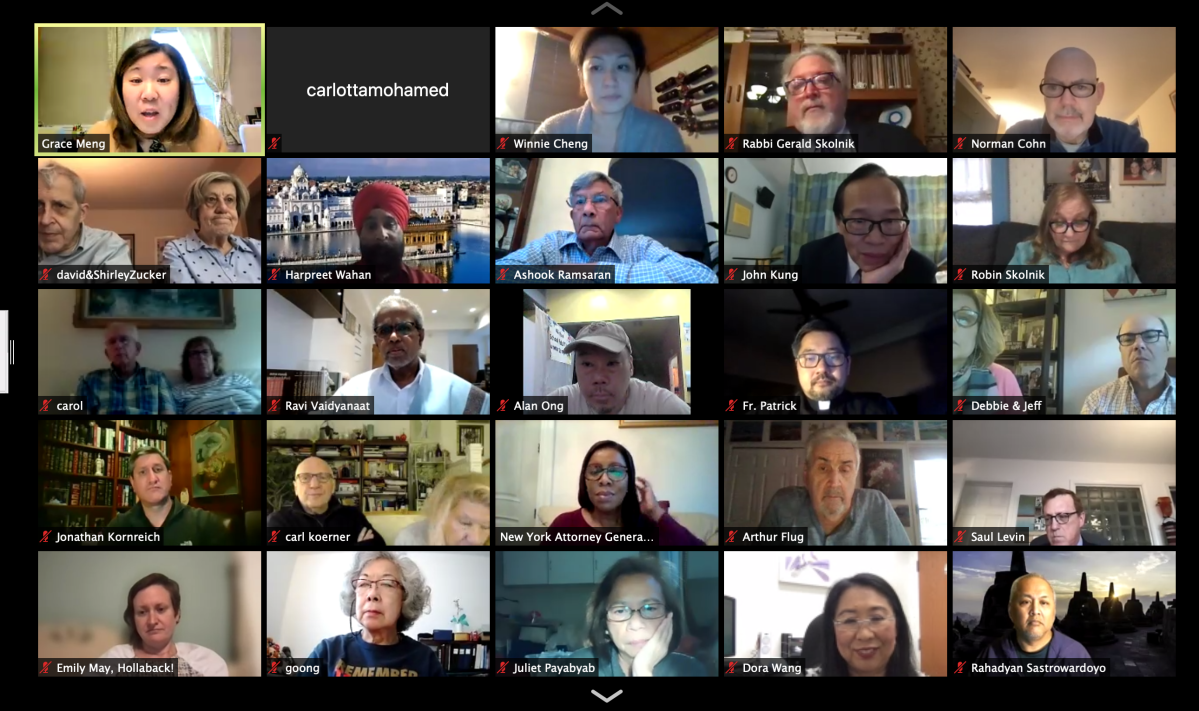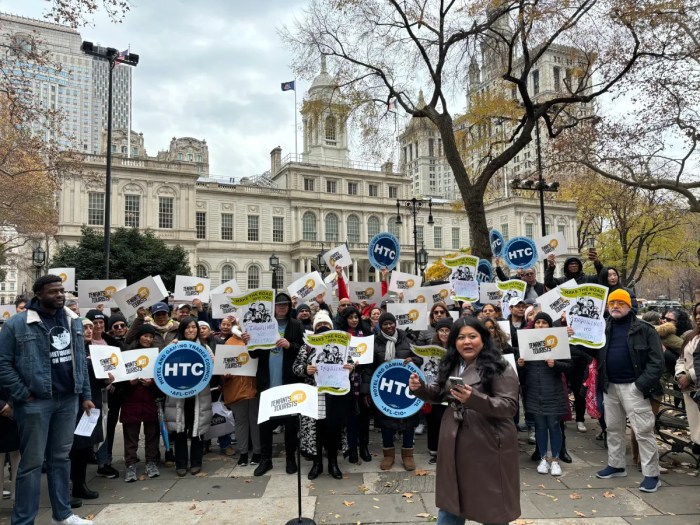Although Pastor Rev. Patrick Longalong, an Asian American Catholic priest of Our Lady of Lourdes Parish in Queens Village, has lived in the borough for most of his life, he has often been asked, “Oh, is it hot where you came from?” In response, he would say, “What do you mean, Bellerose, Queens? It’s still the same temperature where I came from.”
The passive aggressive comments and snide comments, Longalong said, can be very discouraging and hurtful, pushing many people to be quiet and stay amongst themselves, especially in the Asian American community, as anti-Asian attacks over the past year have rapidly increased in New York City, with several attacks occurring in Queens.
“I’m seeing a lot of things on Facebook where people are encouraged to not go out by yourself, and to find someone to walk with,” Longalong said. “For people to encourage that is devastating. I want to be able to walk out on the streets of Queens on my own, by myself, and have some quiet time. I want to feel safe.”
Longalong’s concerns about safety during a time period where Asian Americans are experiencing fear, anger and hurt, is a comment Congresswoman Grace Meng has heard over the past year from her constituents in Queens.
To address these concerns, Meng led a virtual panel discussion on Thursday, April 1, with New York State Attorney General Letitia James, faith leaders from houses of worship in Queens, and community leaders. The panel’s focus was how to heal as a community and to find resources for self-advocacy.
Meng, who has introduced legislation to combat the rise in hate crimes against Asian Americans, expressed gratitude for the incredible solidarity that so many in Queens, and across the country, have shown to the Asian American and Pacific Islander (AAPI) community.
“We are so heartened and thankful for the show of solidarity,” Meng said. “I know that people are really scared and are telling their parents and grandparents to not go outside in fear of something happening to them. People are telling me they’re not going to let their kids go outside to play in fear of them getting harassed. It’s a tough time but it’s important we have this conversation and continue to partner with communities and keep each other safe.”
James condemned the violent rise in anti-Asian attacks as “despicable” and called for unity, reiterating that hate will not be tolerated.
“As someone who has experienced hate in her lifetime, it’s important that we stand with other communities. It really is a front to our values and everything we believe in, and each and every time there have been acts of hate against any community, I’ve stood with them,” James said. “There is no room for hate in New York or this nation — whether it be acts of anti-Semitism, acts against the African American community, the Asian community, LGBT and immigrant communities.”
Following remarks by members of the clergy from houses of worship in Queens, Meng and officials from the American Psychiatric Association, National Asian Pacific American Women’s Forum, Asian American Federation, Mom’s Rising and Hollaback! held a Q&A segment.
In response to the uptick in anti-Asian and xenophobic harassment, a global people-powered movement to end harassment called “Hollaback!” partnered with Asian Americans Advancing Justice to adapt its free bystander intervention methodology training session.
“We’ve had 45,000 people sign up for training over the past week, and we’ve trained about 30,000 people in this methodology so far,” said Emily May of Hollaback! “We are committed alongside our partners at Asian Americans Advancing Justice to keep this training free and open for any American who wants to get trained during this, or at any time.”
According to Jo-Ann Yoo, executive director of the Asian American Federation, safety conversations need to happen for not just Asian Americans, but for all New Yorkers.
“This really is a citywide concern; it can’t just be our solution alone. The solution comes from everybody,” said Yoo after announcing the launch of AAF’s Hope Against Hate campaign to stop the senseless violence against Asian Americans.
When asked whether the Department of Education should implement a series of anti-racism/hate/bullying campaigns in schools and integrating histories of immigrant stories of each ethnic group into a curriculum, Meng said she is working on a legislation with other caucuses within Congress to expand the curriculum in schools.
“Even though I was born and raised here and went to school here, I really did not learn a lot about different communities’ contributions to American history,” Meng said. “I barely learned anything about the Chinese building the railroad or Japanese Americans being incarcerated, or slaves building the U.S. Capitol. You just don’t learn enough about the complete picture of American history.”
The panelists agreed that children are never too young to understand the issue and concept of belonging and exclusion.
“It’s really important that you’re teaching kids the concept of inclusion from a young age and really relate it to what they understand and experience right now versus what is currently happening out there,” said Sung Yeon Choimorrow, executive director of the National Asian Pacific American Women’s Forum.
While anxiety and fear has been prevalent in the Asian American community this year, it has highlighted the need for more accessible mental health services and resources. According to Yeon, 50 percent of respondents who took a poll said they experienced racial harassment in public in the last 24 months, while 75 percent of respondents said they have mental health issues as a result of the pandemic.
Dr. Dora Wang of the American Psychiatric Association noted the lack of culturally sensitive and appropriate services in most places that include therapists who don’t understand the cultural experiences of Asian Americans.
“It would be great if there were some type of web portal where people could log on and find a therapist or psychiatrist who speaks their language, or translation services, or people who understand the culture,” Wang said.
In the Asian American community in New York City, there are only three mental health clinics and not enough doctors who speak the language, according to Yoo. She also noted the many roles that law enforcement has taken on, such as mental health services — a section that needs to be separate since the NYPD is not trained to handle mental health cases.
Addressing the issue of gun violence in America and the recent mass shootings in Atlanta that claimed the lives of eight people, six of whom were Asian women, Gloria Pan of MomsRising said all of the issues — racism, hate, xenophobia and violence against women — spring from the toxic roots of patriarchal white supremacy, which is strengthened by gun violence.
“In order for us all to be safe we have to fight the explosive combination of racism, misogyny and gun violence to reduce the likelihood of these shootings happening again,” Pan said.





































